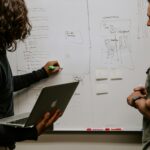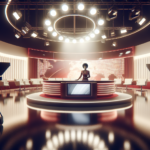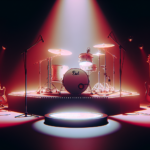The Whitney Museum of American Art has suspended its prestigious Independent Study Program (ISP) for the 2025-26 academic year following a controversy over the censorship of a performance art event supporting the Palestinian cause. The decision comes after a clash between museum officials and students, who claimed they were censored when the museum canceled a planned performance titled “No Aesthetic Outside My Freedom: Mourning, Militancy, and Performance” by artists Fadl Fakhouri, Noel Maghathe, and Fargo Tbakhi. Museum director Scott Rothkopf cited a “gap in leadership” and the need to reconsider the relationship between the program and the museum as reasons for the suspension.
The museum argued that the event violated their anti-harassment policies, with claims that a previous version included a segment encouraging audience members to leave if they supported Israel. Ashley Reese, the museum’s director of communications, emphasized that the Whitney could not condone any form of discrimination based on belief systems. The decision has prompted criticism from students, alumni, and some administrators of the program.
Over 300 ISP alumni and community members, including notable figures like Judith Butler, Candice Breitz, Huey Copeland, Walid Raad, and Alfredo Jaar, have signed a letter expressing “unequivocal support” for the current cohort.
Whitney Museum postpones art program
The letter states, “The Museum’s stated mission and core values are grounded precisely in its acceptance of dissent, reinvention, and activism.
If the Museum denies the ISP the ability to independently persist as a site of critique, it loses all claim to uphold the very values it cites as its guiding principles.”
The ISP, founded in 1968, has built a reputation for nurturing some of the most important figures in contemporary art, including Andrea Fraser, Felix Gonzalez-Torres, and Jenny Holzer. The program’s suspension has sparked considerable debate within the art community, reflecting broader debates about free expression and the boundaries of acceptable discourse in art institutions. The National Coalition Against Censorship (NCAC) decried the move, stating that it mirrors an authoritarian approach and sets a troubling precedent for how museums engage with politically and socially critical artists.
The situation at the Whitney Museum reflects a broader political climate of fear and intimidation in the United States, with recent crackdowns on free expression, protest, and speech by artists and scholars supporting Palestine. Despite the suspension, the Whitney Museum has assured that it remains committed to supporting challenging discussions on important social issues and events. The museum intends to use the coming months to reflect on the ISP’s recent growth and find a new long-term Director, with expectations to resume the program in the 2026-27 academic year.









